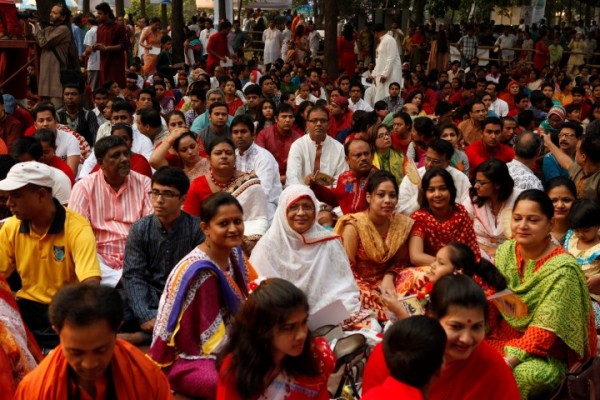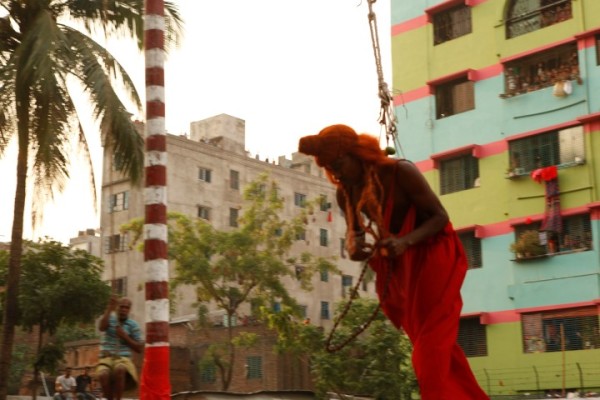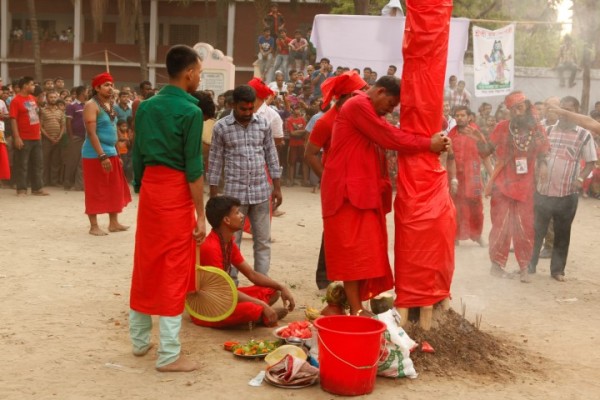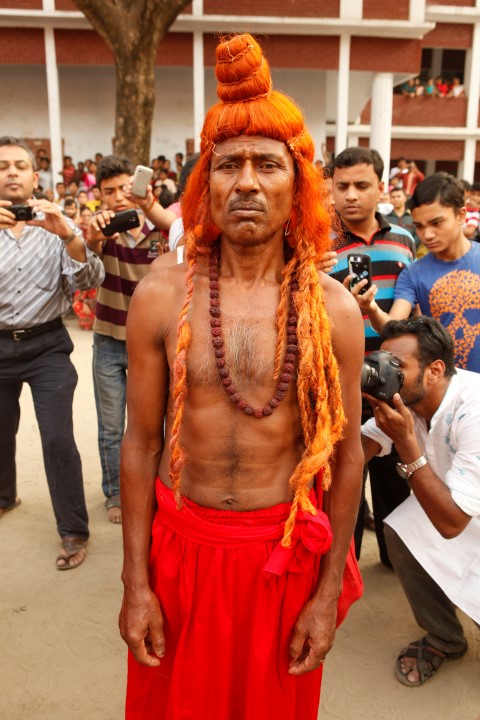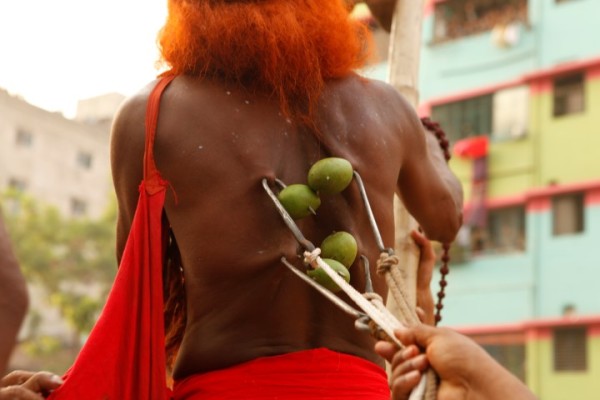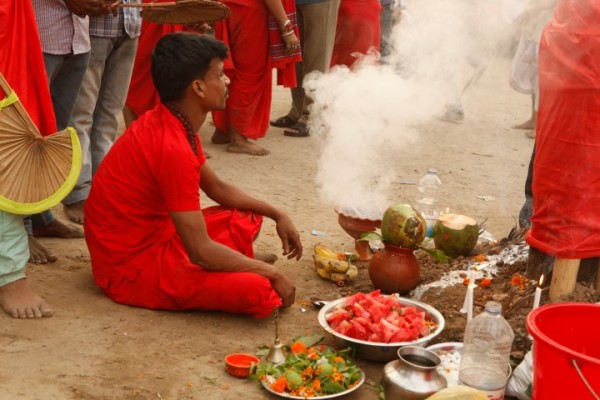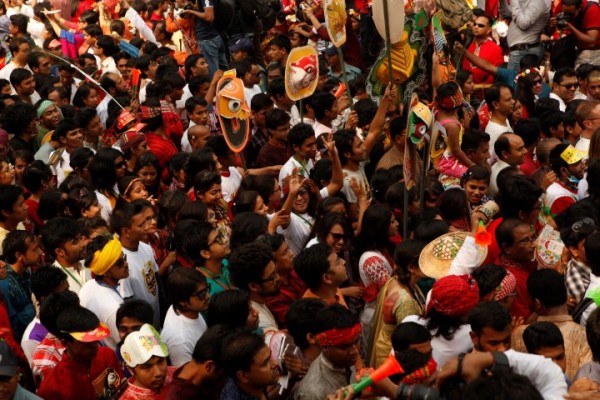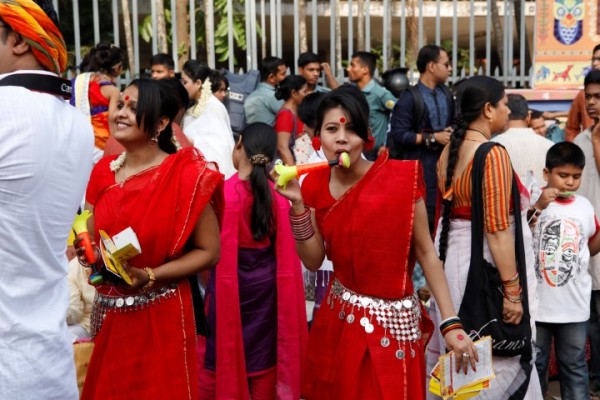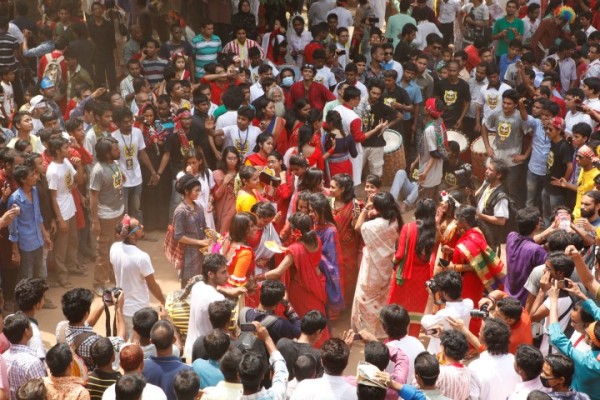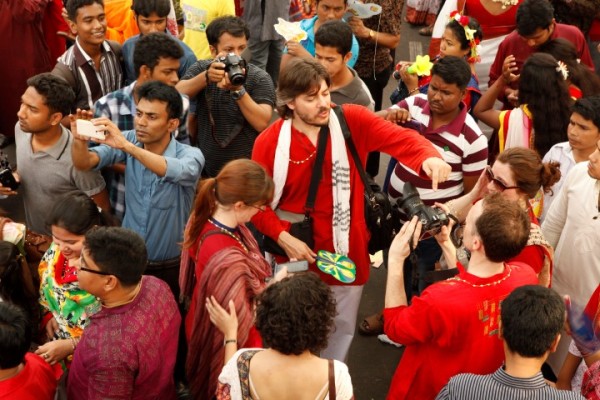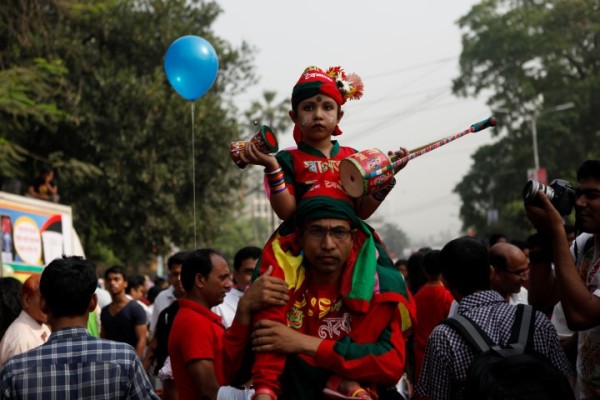Bengali New Year or, Poila Boishakh in Bengali, occurred 14 April, 2014, was the first day of the Bengali calendar, celebrated in the Bangladesh and in the Indian state of West Bengal, by the Bengali people and also by minor Bengali communities . It coincides with the New Year’s days of numerous Southern Asian calendars. The traditional greeting for Bengali New Year is, “Shubho Noboborsho”.
In Bengali, Poila stands for ‘first’ and Boishakh is first month of the Bengali calendar.
Some of its customs are related to Mughal Emperor Jalaluddin Muhammad Akbar, the renowned grandson of Zahiruddin Muhammad Babur, the 3rd Mughal Emperor, who introduced the Bengali Calendar. For relatively easier tax collection, Akbar changed the practice of agricultural tax collection according to the Hijri calendar. He ordered an improvement because the Hijri calendar, being lunar, did not coincide with the harvest season which meant eventually the farmers faced severe difficulties in paying taxes out of season.
The regal astrologer of Emperor Akbar’s reign, Aamir Fatehullah Siraji, developed this current calendar after researching the lunar Hijri and solar calendars. The distinctive characteristic of the Bengali year was that, rather than being a lunar calendar, it was based on a union of the solar and lunar year. This was essentially a great advance, as the solar and lunar years were formulated in very diverse systems.
Primarily this calendar was named as “Fasli San” and then Bongabdo or Bangla Year and was launched on 10/11 March 1584, but was dated from 5 November 1556 or 963 Hijri. This was the day that Akbar defeated Himu in the clash of Panipat II to ascend the throne.
Poila Boishakh is celebrated with grandeur and colour in Dhaka and other parts of Bangladesh. The celebrations are started at the break of dawn with a rendition of Rabindranath Tagore’s song “Esho he Baishakh” by Chhayanat under the banyan tree at Ramna – the Ramna Batamul.
An integral part of the festivities is the Mongol Shobhajatra, a traditional colourful procession organised by the students of the Faculty of Fine Arts (Charukala) of Dhaka University. The procession has a different theme relevant to the country’s culture and politics every year. Different cultural organizations and bands also perform on this occasion and fairs celebrating Bangla culture are organized throughout the country. Other traditional events held to celebrate Poila Boishakh include bull racing in Munshiganj, wrestling in Chittagong, boat racing, cockfights, pigeon racing and more.
Photos by Md. Reaz Uddin, Photo Journalist at Alliance Francaise, Dhaka.
Information presented by Nazrul Islam Jashim


